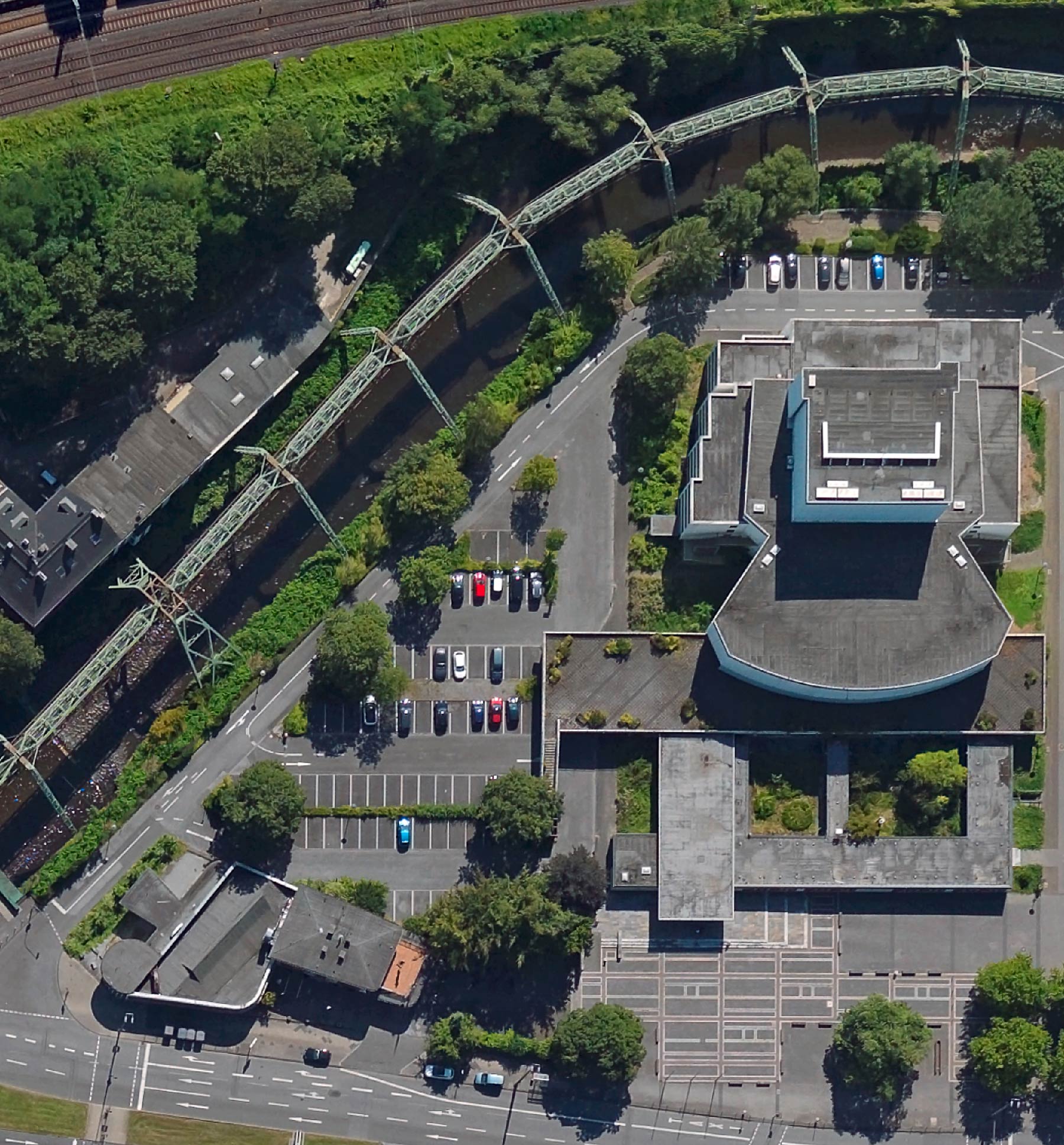After Pina Bausch’s death in 2009 the search began in Wuppertal for possible ways to preserve the dancer and choreographer’s artistic heritage in the long term. These discussions led first and foremost to the establishment of the Pina Bausch Foundation, on the initiative of her son, Salomon Bausch, and her partner, Ronald Kay. At the same time discussions continued on the future of Wuppertal’s main theatre, the Schauspielhaus, which had served for years (along with Wuppertal Opera House) as a rehearsal and performance venue for the Tanztheater Wuppertal Pina Bausch. Early on during the public brainstorming process, the idea of a dance centre connected to the Pina Bausch Archive emerged.

Following this, in April 2012, the artistic and managing director of the choreographic centre PACT Zollverein in Essen, Stefan Hilterhaus, was commissioned to devise an artistic concept for the Pina Bausch Centre. On the basis of this concept, Wuppertal’s facilities management was to develop an initial space allocation plan, evaluate the potential to realise it, and determine the approximate scale of the costs. The result became part of a report in which five alternative future uses for the theatre were examined. This report concluded that the only realistic use was as the Pina Bausch Centre.
The city authorities entered into discussions with both the North Rhine Westphalia state government and the national government, culminating in the project’s adoption in the CDU/CSU and SPD coalition agreement for the eighteenth legislature period of the German parliament. On the day it was signed (16 December 2013) Wuppertal city council agreed additions to the guidelines in the ‘Wuppertal 2025’ strategy, including the Pina Bausch Centre as a key project.
The administration was instructed to update the concept for the Pina Bausch Centre, in consultation with the national and state authorities and the Pina Bausch Foundation, to embark on planning and to continue negotiations on a national and state level.
After the German parliament’s budget committee decided to make 29.2 million euro available for planning, construction and fitting out of the Pina Bausch Centre (half of the maximum investment costs of 58.4 million euro), on 14 December 2015, in its policy resolution on the creation of the Pina Bausch Centre, Wuppertal city council voted for the artistic and functional plan to be developed and fleshed out, and for a robust space allocation plan to be drawn up as the basis for an implementation resolution.
On the basis of the space allocation plan an informal enquiry was sent to the national government on 12 May 2016, which represented the first stage in the process leading to the approval of a contribution. The space and personnel requirements submitted to the government on 8 March 2017 were approved on merit by the funding body.
Between October 2016 and May 2017 external experts carried out a conservation audit of the theatre as well as various investigations for which specialist knowledge or equipment was required. The state paid 80% of these costs.
Once the state government had announced its willingness to contribute to the running costs, the city council cleared the way for the construction of the Pina Bausch Centre in its resolution of 17 December 2018. The individual planning and construction phases are to be approved successively by the council’s Supervision and Steering Committee for the Pina Bausch Centre Project. If, following completion of the planning phase, the estimates that all costs are covered are confirmed, construction can begin. The committee held its inaugural meeting on 11 June 2019.
On 16 December 2019 the council took the decision to create the Pina Bausch Centre whether or not the national government makes a contribution to the running costs. The council was instructed to present a conceptual plan for the operation of the institution appropriate to the budget available. The city intends to found a public limited company to operate the building which will also co-ordinate the conceptual planning of the preparatory phase. The North Rhine-Westphalia state government was also offered the opportunity to become a shareholder in the company.